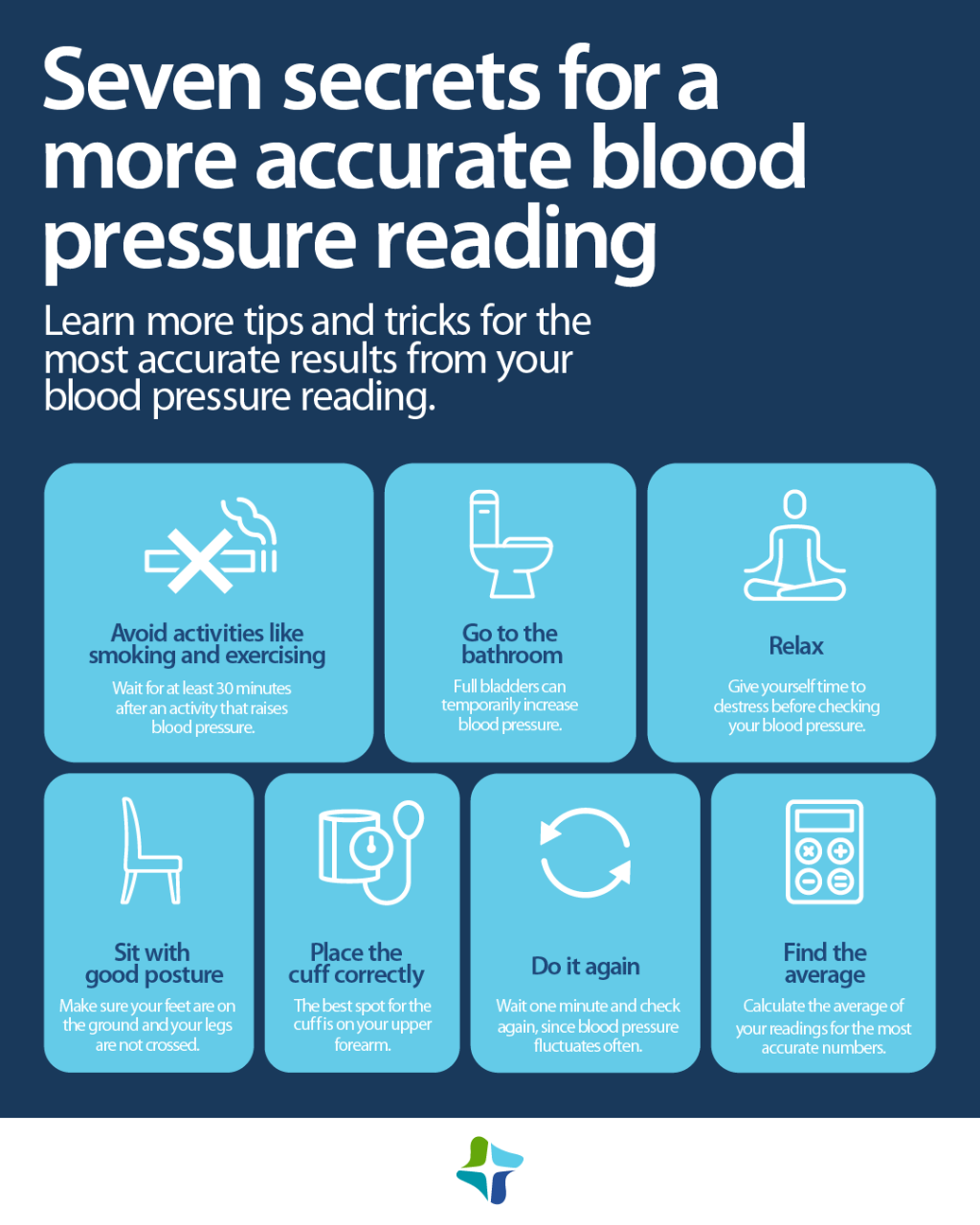While it may seem like taking your blood pressure is as easy as placing the cuff on your arm for a few seconds and either pumping it or pressing a button, there’s much more you should do to get the most accurate result possible. But don’t fret! We’ll show you how.
How to get an accurate blood pressure reading
Things like exercise, stress, and caffeine consumption can affect your blood pressure reading. Keep these seven tips in mind when taking your blood pressure at home.
- Avoid smoking, consuming caffeine, and exercising for 30 minutes prior. These activities can raise your blood pressure, so make sure not to do them before your test.
- Go to the bathroom. Having a full bladder can cause a temporary increase in blood pressure, so use the restroom before beginning.
- Relax. Stress can cause your blood pressure to increase, so consider this just a daily task you need to complete and take time to relax beforehand. About five minutes before your test, sit still and try not to talk, as this can cause your reading to be higher.
- Sit with good posture. Find a seat and sit with your back aligned with the chair. Place your feet on the ground and avoid crossing your legs. Using a table and a pillow, comfortably elevate your arm, so it is at heart level.
- Place the cuff. The best location for the cuff is your upper forearm, not your wrist. Whether electric or manual, follow the directions on the package to measure your blood pressure. Write down the readings.
- Do it again. About a minute later, retake your blood pressure since your blood pressure fluctuates quickly and often. If the first results are drastically different from the second results, consider taking your blood pressure for the third time.
- Find the average. Add the top numbers together and the bottom numbers together. Then divide these numbers by the amount of times you collected your blood pressure. This can give you a good baseline reading.
Blood pressure frequently fluctuates, even with the most minor of actions. Our doctors recommend taking your blood pressure simultaneously every day for a few days in a row to get a general idea of what your blood pressure is.
Why it’s important to measure your blood pressure frequently
Did you know that small things throughout a normal day can cause your blood pressure to change temporarily? That’s why our doctors recommend taking your blood pressure at the same time every day for a few days in a row. This can help give you an overall idea and account for some of the variability.
Here are a few things that may affect your blood pressure at any given time:
- A poor night’s sleep. A 2019 study found that people who did not sleep well for a night had a higher than normal blood pressure the next day.
- A full bladder. Research shows that having a full bladder leads to increased blood pressure readings. However, participants’ blood pressure lowered after going to the bathroom.
- Eating. After eating, your body directs blood flow to the digestive system to help you break down food. This can lead to a temporary increase in blood pressure.
- Over-the-counter medications. Decongestants, nonsteroidal anti-inflammatories (NSAIDs) like ibuprofen, and other medications can temporarily raise your blood pressure.
If you need to calibrate your blood pressure device or have high blood pressure, schedule an appointment with a St. Joseph and Texas A&M Health Network primary care physician. Our team is here to help you create a customized plan to help lower your blood pressure and live a healthy life.





